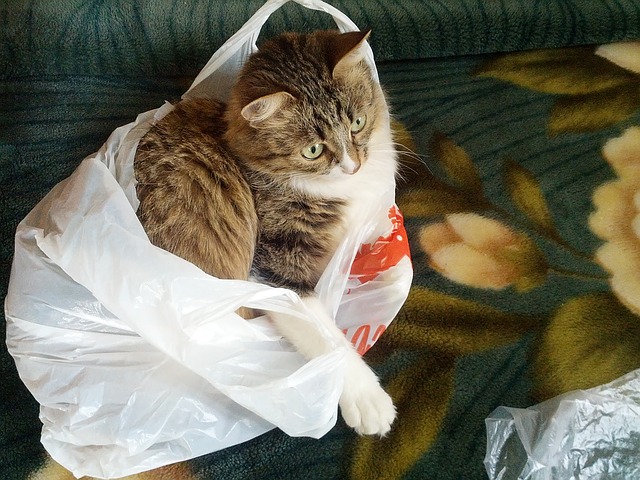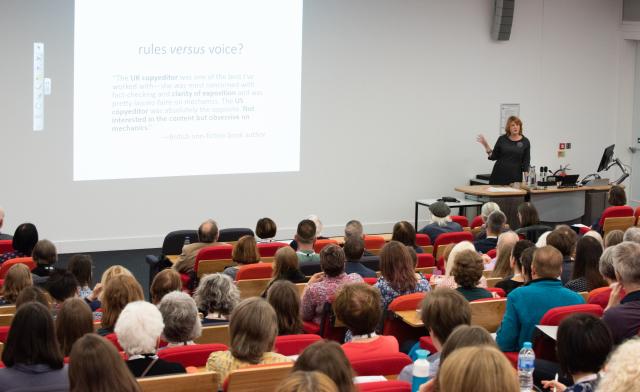When I was invited to write about the challenges and rewards of being a non-native speaker editor of English, it felt like the cat was being let out of the bag after a very long time. I am a non-native English speaker and an editor, but I never think of myself as such – to me, I’m simply an English editor. And now, finally, someone has noticed my big, fat secret.
Abi’s (this blog’s coordinator’s) invitation opened up something I hadn’t until then been ready to acknowledge. I imagine that seeing my name people must wonder where I’m from, how good my English actually is and what’s my claim to editorial competence (I also like to imagine they have better things to do). In today’s interconnected world, I could’ve been born in the UK to Polish parents – a lot of immigrant children carry non-English names. But I learned English in another country and came here in my 20s, and when I speak, the first thing you’ll notice will be my unfamiliar accent. Working as an editor, I’m basically asking to be judged on my language at every turn. Shouldn’t an editor be someone whose English, both written and spoken, is impeccable?
By virtue of my background, I’m facing two kinds of challenges already – my name and how I sound. Until that email from Abi, I would deal with them through avoidance. First, I’d be stumped if you found any mention of my background on my public profiles. I’d decided long ago that this would be my weak spot and didn’t want to draw attention to it in case this made anyone doubt my skills. And second, I would simply avoid speaking with clients, at all cost. Unfortunately for me, there are some people who just don’t get the message – and don’t do email. I now thank them.
To a certain extent, the challenges I’ve experienced as an editor of English are internal and come from the idea of what an editor should embody, which to me, and many others, is language knowledge and competence nearing the heights of perfection. As a profession, I think we are quite unique in holding ourselves, often publicly, to such incredibly high linguistic standards that it must come at a price. One of the consequences is that this makes some of us anxious communicators – and the challenge is multiplied for someone who has learned English as an adult. What I’d like us to remember though is that language is a system and therefore can be studied and learned. So can editorial craft. I studied English literature and linguistics for 5 years at university and have worked as an editor of English for nearly 12 years; that gives me close to 17 years of experience as an English-language professional. And I’m still learning – I take editing courses, I read industry books, scour the internet for current language trends, go to conferences – everything we all do as editorial professionals. I find professional development and education to be the best remedy for the lurking ‘English-language editor’ impostor syndrome that rears its head in moments of self-doubt.
The rewards are perhaps the same for me as for everyone else who loves their job. Contact with authors is immensely rewarding; one of my authors calls my editing her work ‘magic’ – it doesn’t get better than this! I engage with incredibly dedicated, knowledgeable and inspirational people who care about how they write, I read books and papers on topics I wouldn’t have come across otherwise, I learn and grow thanks to what I do for a living, and, to use that worn out cliché, I love reading. A challenge now is picking up a book for pure enjoyment, our common complaint I suppose.
I keep going back to that email from Abi, because it’s shifted something for me, prompting a change in how I think about myself and present myself to the world. That same evening, I edited my website bio to say I wasn’t born in the UK and I didn’t graduate from a UK university. Perhaps that’s another step in overcoming my biggest challenge – my own prejudice against myself as a competent, expert, non-native English-language editor.
*As a disclaimer I’d like to add that I have never experienced anything but kindness, encouragement and trust from my colleagues of various nationalities, not least the native speakers of English.
 Kasia Trojanowska, APM (CIEP), MA (hons) English Lit, is an academic and non-fiction English-language copy-editor, proofreader and text designer. She was born and educated in Poland and came to the UK for no specific reason in 2007. Shortly after arriving in London, Kasia found her editorial calling and a first job as an assistant scientific editor. She works both with authors who are English native speakers and those for whom English isn’t their first language, and simply loves her job.
Kasia Trojanowska, APM (CIEP), MA (hons) English Lit, is an academic and non-fiction English-language copy-editor, proofreader and text designer. She was born and educated in Poland and came to the UK for no specific reason in 2007. Shortly after arriving in London, Kasia found her editorial calling and a first job as an assistant scientific editor. She works both with authors who are English native speakers and those for whom English isn’t their first language, and simply loves her job.
Kasia says: I hope it comes across from my blog that ‘non-native English speaker’ is to me an empowering term – it’s part of who I am and I’m proud of my linguistic heritage.
The CIEP’s own view on the use of these labels is available here: ‘”Non-native” and “native”: Why the CIEP is no longer using those terms’.
September 2021
Posted by Abi Saffrey, CIEP blog coordinator.
The views expressed here do not necessarily reflect those of the CIEP.


